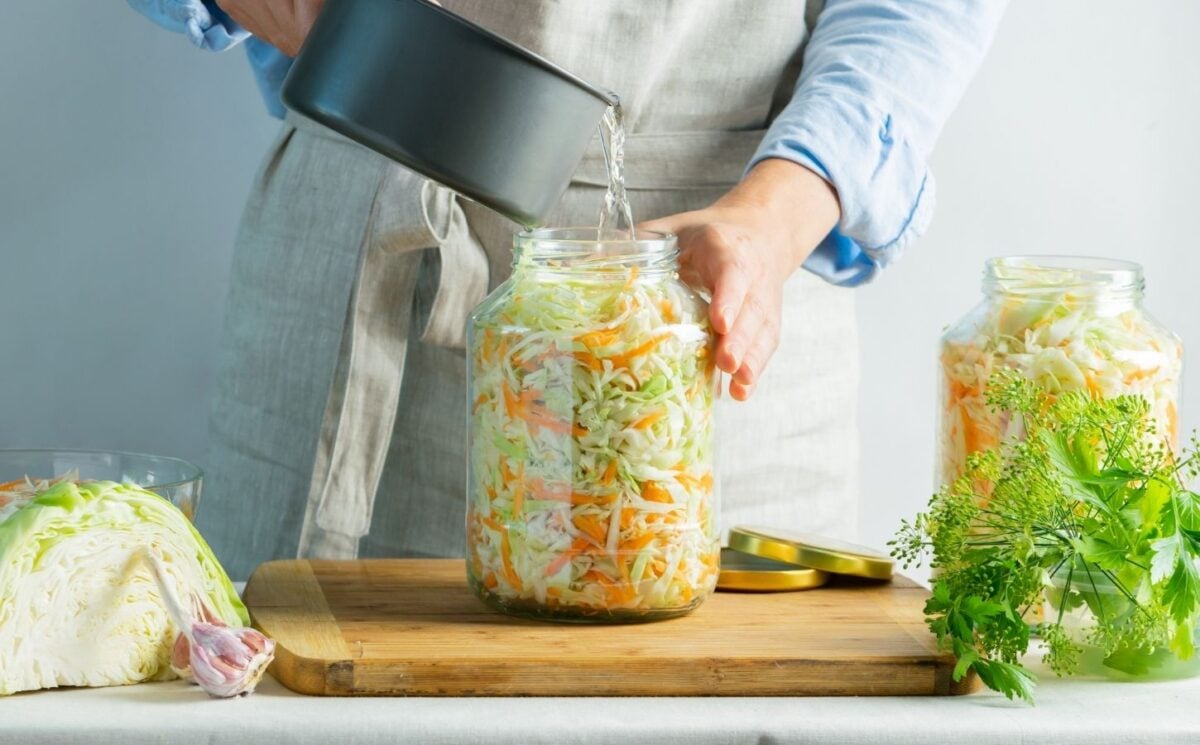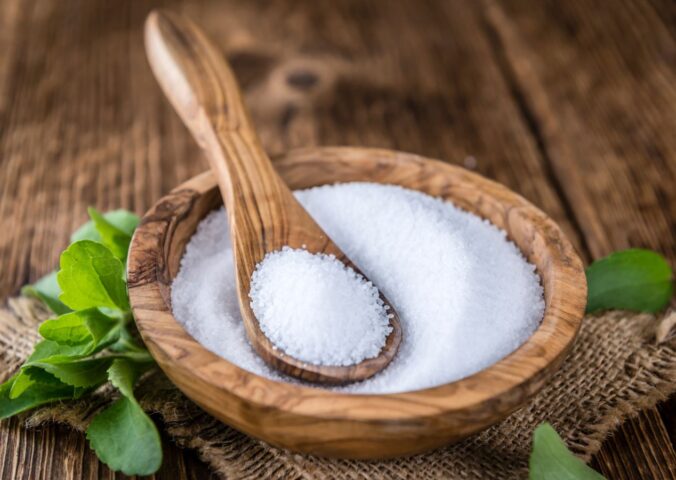Scientists sometimes call the gut our “second brain,” meaning we should give it the TLC it needs to work optimally. Part of loving your gut is providing probiotics to balance its microbiome.
Read more: Study Puts Fermented Foods, Not Fire, As Pivotal Moment In Human Brain Growth
Many fermented plant foods are packed with probiotics, the beneficial bacteria that support a healthy microbiome and keep the gut balanced. A balanced gut is linked to improved digestion, a stronger immune system, and enhanced mood, thanks to gut-brain connection. These foods can help restore balance in your digestive system, making you feel better inside and out.
We’ve taken a closer look at seven fermented plant-based foods that may help heal your gut and restore its microbiome. From sauerkraut to natto, discover how these foods can enhance your digestive health.
Sauerkraut
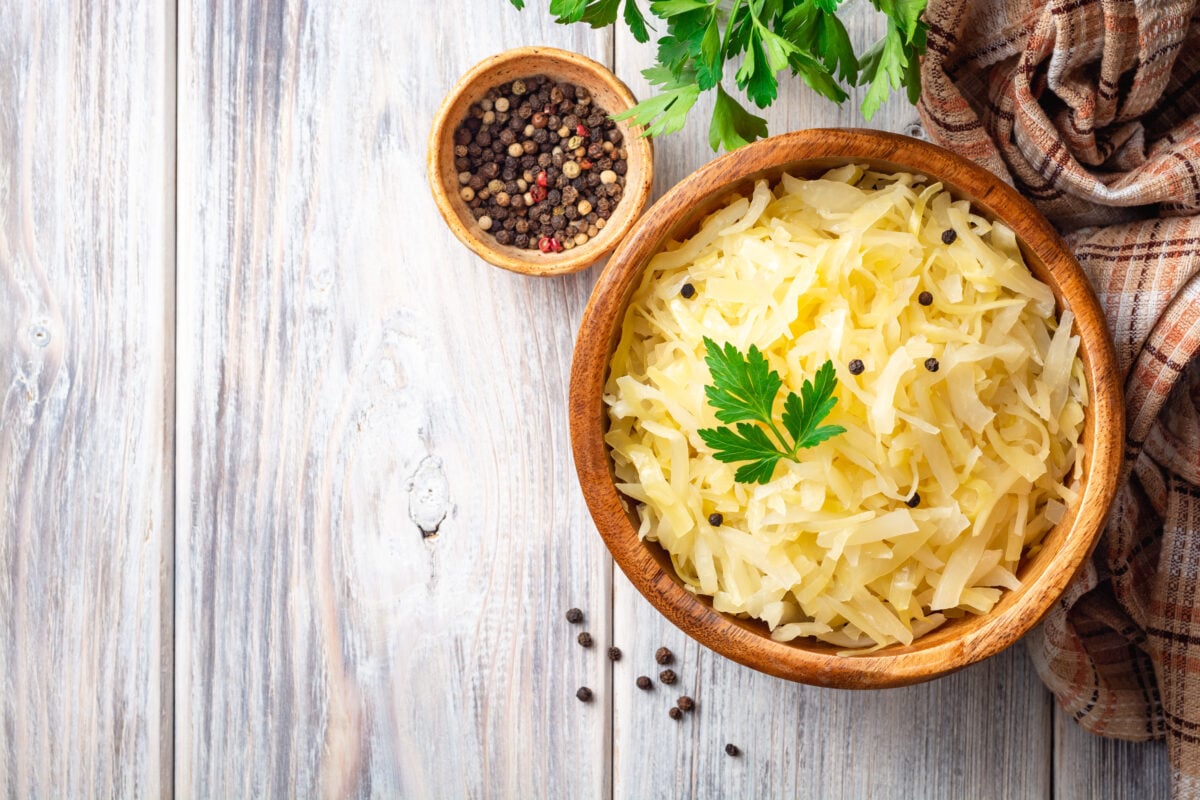
Made from fermented cabbage, sauerkraut dates back over 2,000 years to ancient China, around the time of building the Great Wall of China. It later gained popularity in Europe, particularly in Germany, and is a traditional sausage accompaniment. This tangy food is rich in vitamins C and K, fiber, and antioxidants.
Raw sauerkraut (not the cooked version) is loaded with probiotics—specifically lactic acid bacteria (LAB)—which are valuable bacteria that promote a healthy gut. These probiotics may help balance your gut microbiome, improving digestion and boosting your immune system. Studies have shown that shop-bought sauerkraut can lack good bacteria, so you may want to make it at home yourself using one of many sauerkraut recipes available.
To incorporate sauerkraut into your diet, try adding it to salads, sandwiches, or as a side dish. You can also enjoy it as a topping for veggie burgers or mix it into grain bowls for a zesty kick.
Kimchi
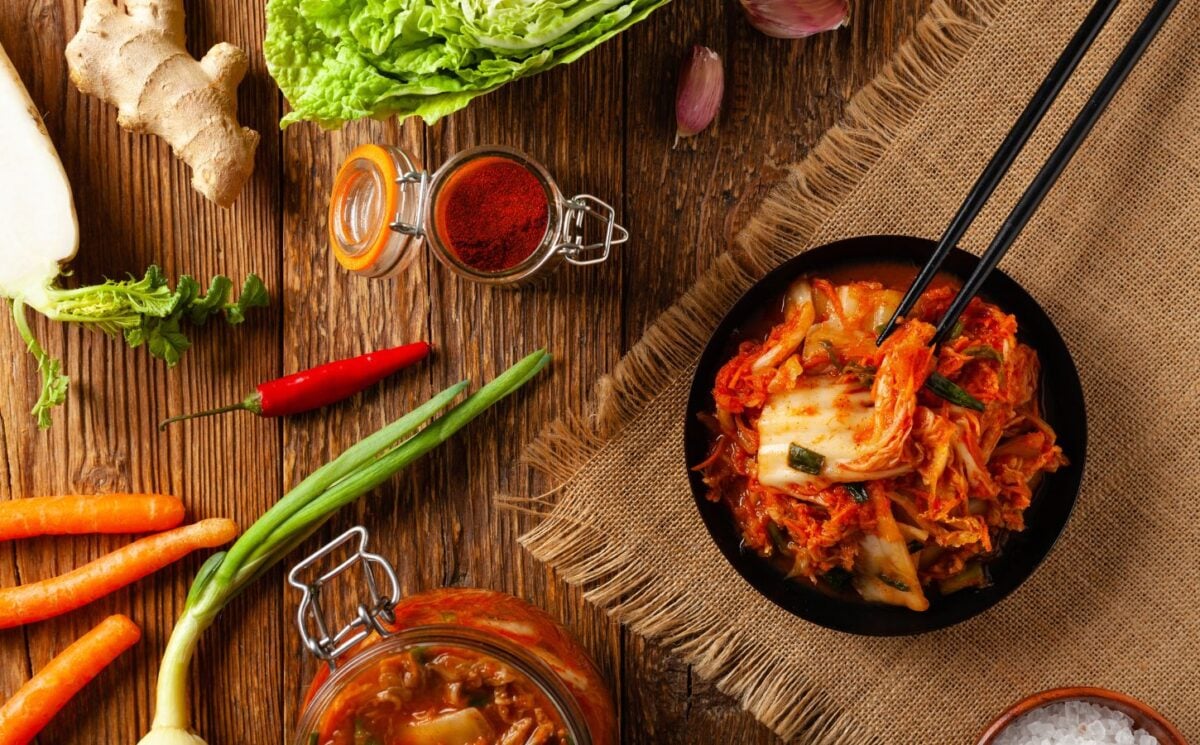
A spicy staple in Korean cuisine, Kimchi is a tangy, fermented vegetable dish typically made with napa cabbage and radishes. It holds deep cultural significance in Korea, where it’s a hugely popular dish.
Depending on ingredients used, kimchi can be a good source of vitamins A and C, antioxidants, and fiber. Kimchi can be beneficial for gut health due to its rich probiotic content, including strains like Lactobacillus plantarum and Lactobacillus brevis. Like sauerkraut, it’s best to make kimchi at home to maximize probiotic content.
You can add kimchi to your meals by mixing it into rice bowls, serving it with stir-fries, or using it as a tangy topping for tacos and sandwiches. You can also enjoy it on its own as a flavorful side dish.
Tempeh
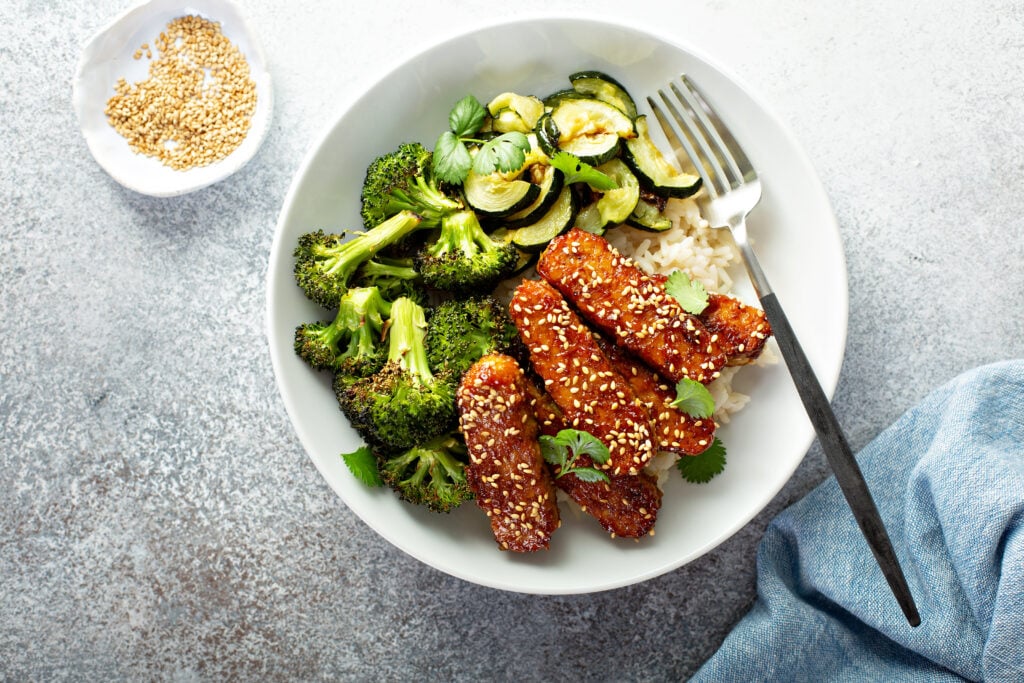
Tempeh, a traditional Indonesian food (central to east Java), is made from fermented soybeans. The process of making tempeh involves culturing cooked soybeans with a beneficial mold called Rhizopus oligosporus, creating a firm, nutty-textured cake.
Nutritionally, tempeh is rich in protein, fiber, and essential nutrients. The fermentation process enhances its digestibility and may contribute to gut health by introducing beneficial bacteria.
Tempeh may lose some of its probiotics while being cooked, but that doesn’t mean it isn’t still gut-friendly. To cook tempeh, slice it and marinate it in soy sauce, ginger, and garlic. Then, sauté or bake it until golden and crispy. Add it to stir-fries, salads, or grain bowls for a tasty, gut-friendly meal. Tempeh is an excellent addition to your diet with its versatile flavor and health benefits.
Read more: Tempeh Is Protein-Packed And Great For Your Gut – 6 Recipes To Try
Miso
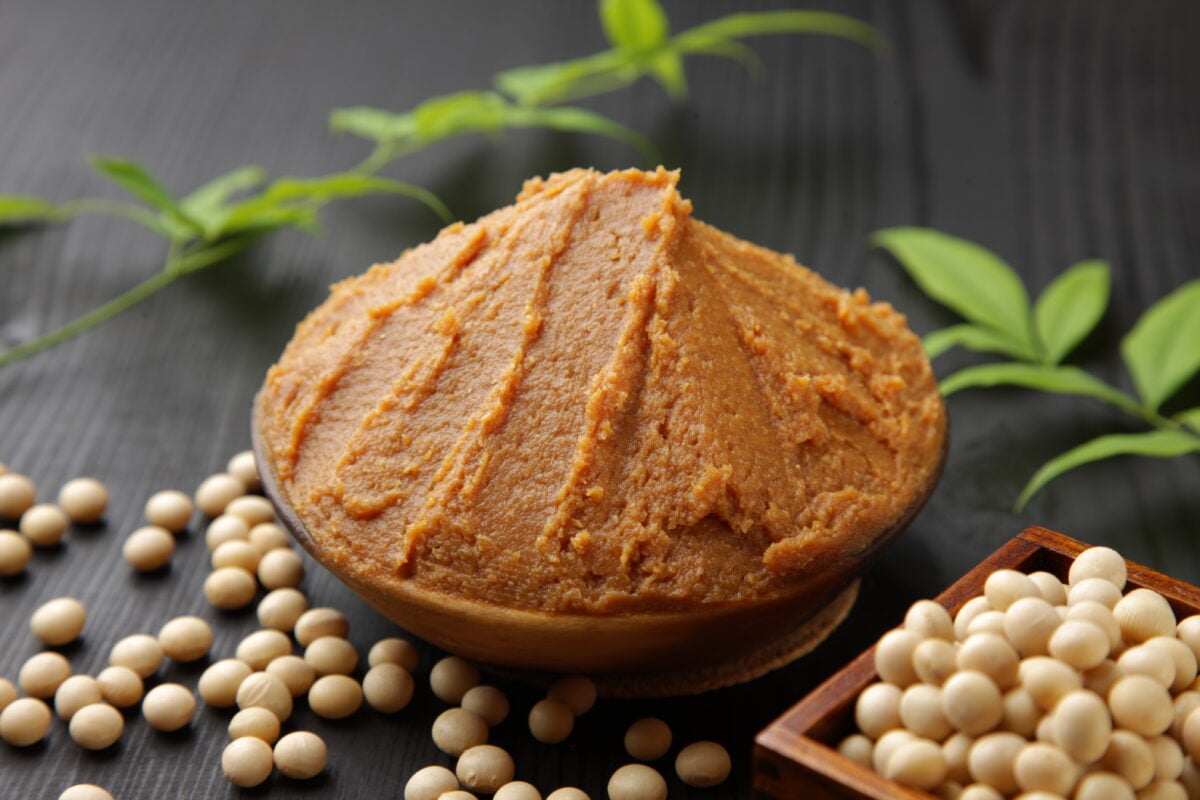
Miso is a traditional Japanese seasoning made from fermented soybeans, rice, or barley. People have used miso for centuries in soups, sauces, and marinades. The fermentation process involves culturing soybeans with a mold called koji, creating a paste that can be rich in probiotics.
Miso supports gut health by introducing helpful bacteria that may aid balance in the gut microbiome and improve digestion.
Miso, again, may lose probiotics in the heating process. But you don’t have to cook miso to use it. You can use miso in various ways, such as stirring it into soups, mixing it into salad dressings, or marinating tofu or vegetables. Its savory, umami flavor adds depth to dishes, and miso is popular for its taste as well as its health benefits.
Water Kefir
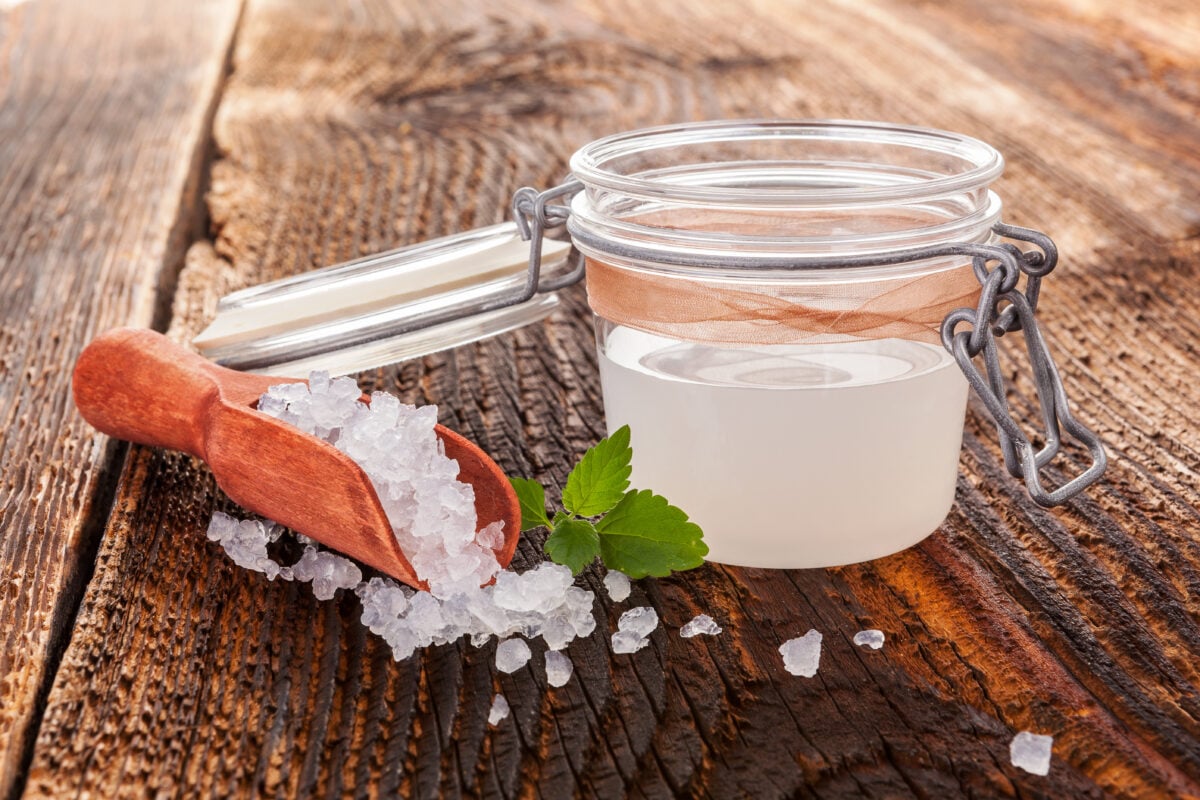
Water kefir (not milk) is a fermented beverage made from water, sugar, and kefir grains. Unlike milk kefir, which is dairy-based, water kefir is wholly plant-based, making it suitable for vegans. It’s often rich in probiotics, including Lactobacillus, which may support gut health by balancing your gut microbiome and improving digestion.
Fermentation involves culturing sugar water with kefir grains, producing a tangy and slightly fizzy drink. To make water kefir, dissolve sugar in water, add the kefir grains, and let it ferment for 24-48 hours. You can flavor it with fruit or herbs for a refreshing twist. Enjoy it chilled for a gut-friendly beverage that’s easy to make at home.
Natto
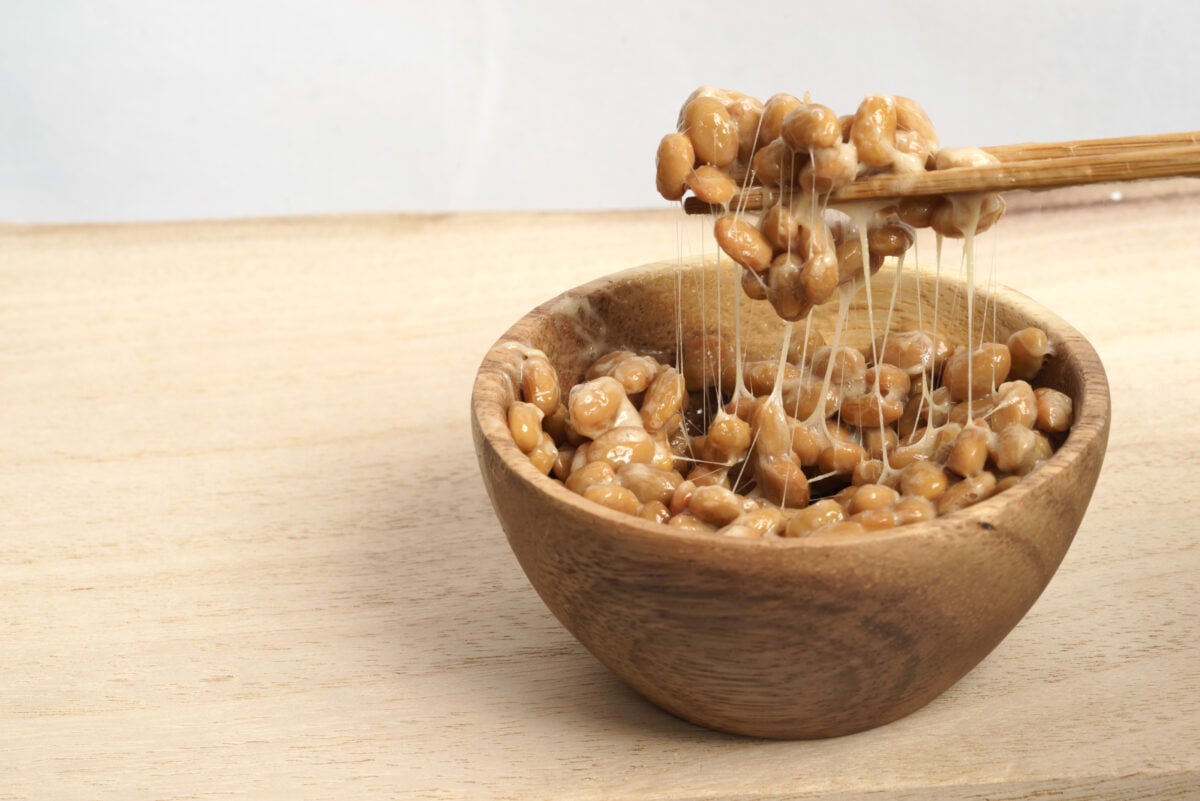
Natto, a traditional Japanese food, is made from fermented soybeans and is known for its intense flavor and sticky texture. Natto is rich in protein, vitamins – particularly vitamin K2 – and minerals.
Its fermentation process introduces unique probiotic strains like Bacillus subtilis, which may support gut health by promoting a balanced microbiome and aiding digestion.
To incorporate natto into your diet, add natto to rice bowls or salads, use miso in soups and dressings, and include tempeh in stir-fries or sandwiches.
Kombucha
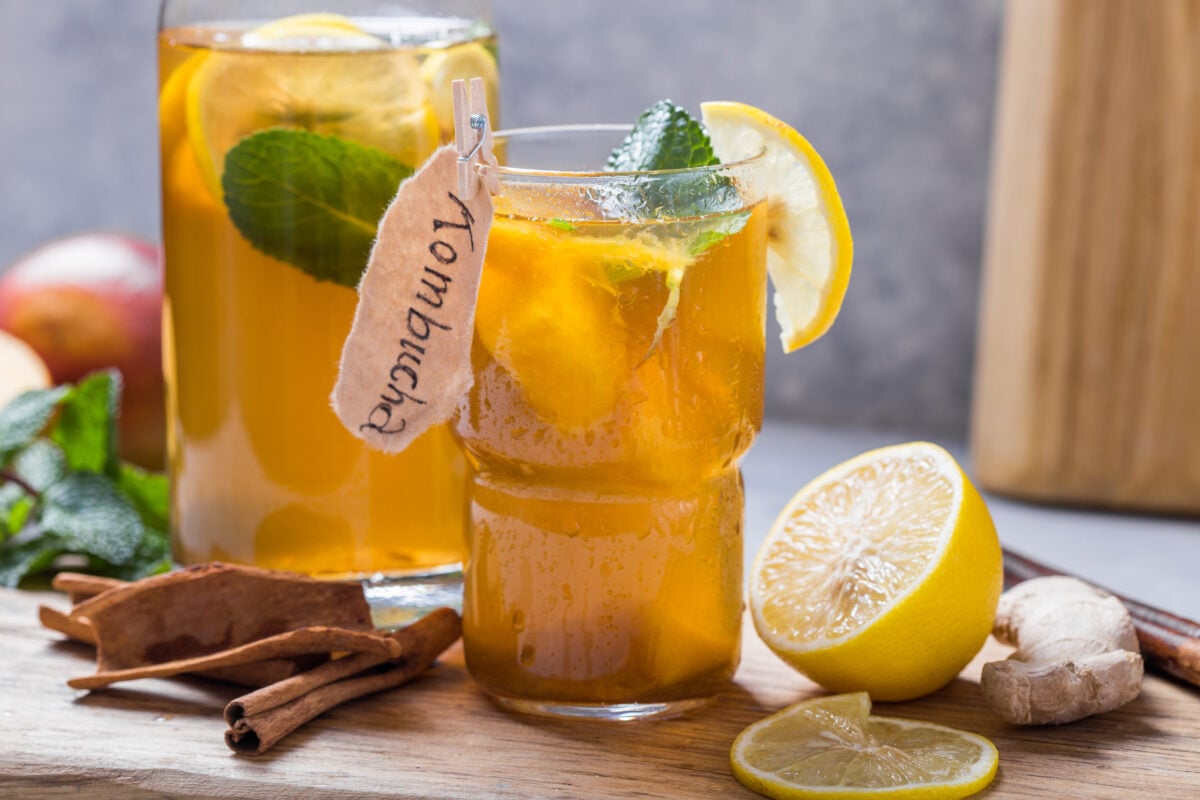
Kombucha, a fermented tea, has been enjoyed for over 2,000 years. This drink originated in northeast China and has surged in popularity recently due to its health benefits and unique taste.
Kombucha may support gut health with probiotics produced during fermentation. This process involves fermenting tea with a symbiotic culture of bacteria and yeast (SCOBY). The probiotics balance your gut microbiome, improving digestion and boosting immune function, which can impact aging processes.
You can buy kombucha in many shops and restaurants around the world. If you’re feeling adventurous, you can make your own by fermenting sweet tea with a SCOBY at home. Experiment with natural flavors like ginger or berry to create a delicious, gut-friendly beverage.
Read more: Miso Paste Becomes The ‘First Food Ever’ To Be Fermented In Space
